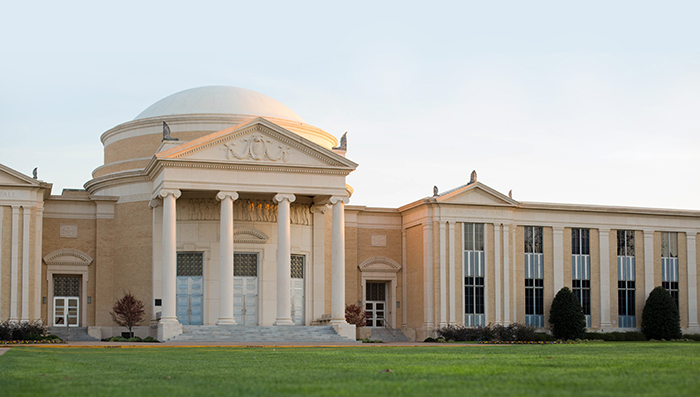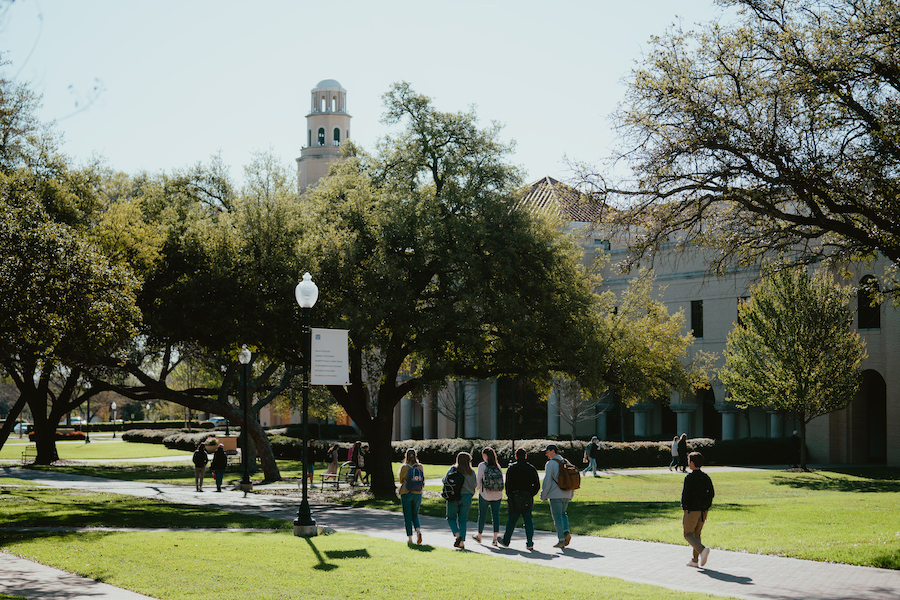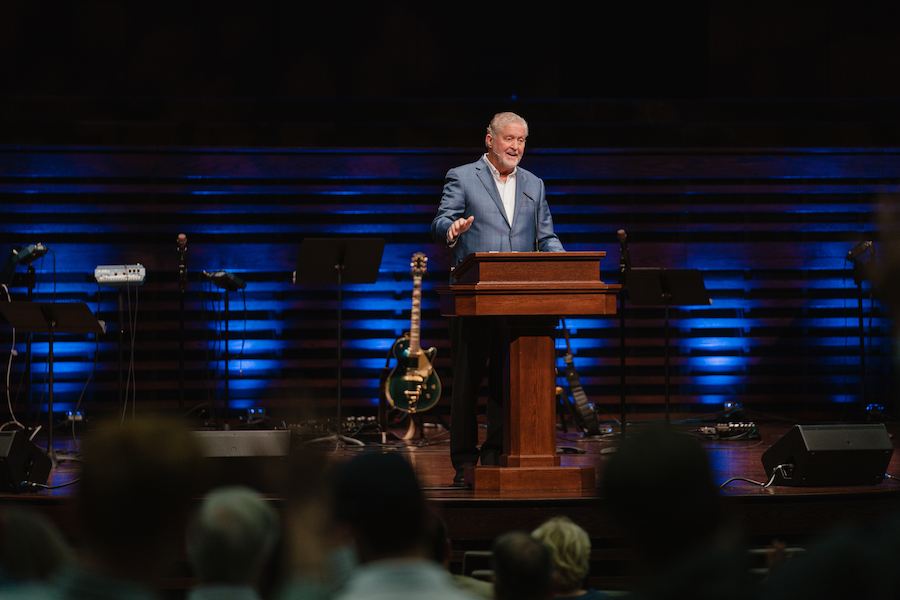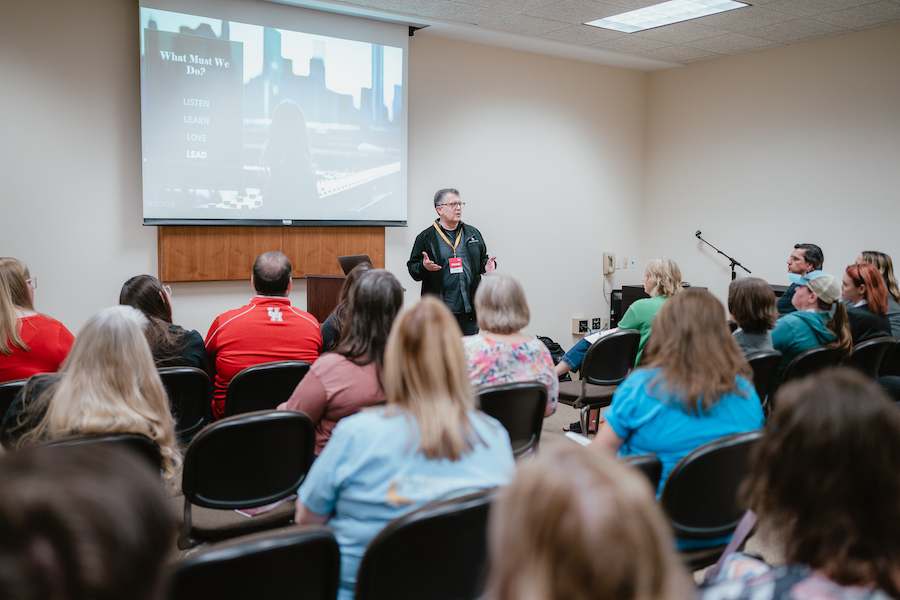Southwestern mission team brings hope of the Gospel to South Asian communities
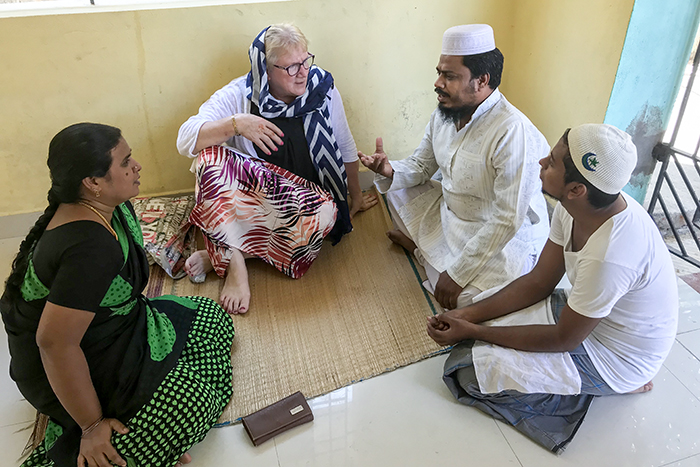
During a recent mission trip to South Asia, Ruth,* a master’s student at Southwestern Seminary, noted the desire of those she met to be a people of worship. Unfortunately, Ruth says, their worship was always misplaced in objects or one of the thousands of Hindu gods that they believed would help them, bless their homes and give them a valuable life.
People were searching, Ruth says, for an answer to their hardships. “Many people are just trying to survive,” she continues. “But then God reminded me that money is not the ultimate solution to life’s struggles. Jesus is the solution.”
Eight Southwestern Seminary students partnered with South Asian missionaries, May 23 – June 11, to share this solution with people by going into neighborhoods to spread the Gospel to their residents. By the end of the trip, more than 60 people had professed faith in Christ and were connected with local missionaries for follow-up, baptism and discipleship.
Ruth, who grew up in China, says she was accustomed to having to convince people that any god exists. In contrast to this past experience, sharing the Gospel with people in South Asia required an approach that clearly explained that there is only one true God.
Many were resistant to the Gospel, but many more were eager to add Jesus to their list of gods whom they worshiped. “My heart was broken for these people,” Ruth says. “They are blinded and deaf to the truth. Even when you tell them, they often do not understand.”
Because of this, Ruth says, the spiritual needs are great, and opportunities are unlimited. Master’s student Bonnie Jacobs found this to be especially true when reaching South Asian women. In that social context, men and women usually are not allowed to freely interact with one another without special permission. Jacobs therefore discovered that she had some unique opportunities as a woman to reach other women with the Gospel.
Many of the Southwestern students, including some male students, realized that their presence drew the attention of many locals and would often find themselves surrounded by a group of people curious to discover what they were doing there. Each time provided a chance to share the Gospel, usually resulting in multiple salvations at once.
But Jacobs noticed that her interactions with women were of a different nature. Many of them, she says, had been treated as second-class citizens and felt that they had no hope.
After entering a Hindu temple, a woman whose job was to clean the temple approached Jacobs and asked her if the temple was clean enough for her. “Oh, yes,” Jacobs responded. “That is not a problem at all. The only problem is that I believe there is only one God, and here I see that there are many gods.”
As Jacobs began to share the Gospel, the woman sat on the floor to listen. To the surprise of this woman, Jacobs joined her on the floor. “She was so happy that I sat next to her,” Jacobs says, “that I cared enough to sit next to her and talk with her.”
This simple act sent a profound message to the woman. Jacobs says that, as someone who was often looked down on because she is a woman from a lower group in the Hindu caste system, cultural prejudices had made the woman feel inferior and of little value.
As they spoke, several other women crowded around to hear their conversation, allowing for about a dozen women to hear the Gospel in the middle of a Hindu temple. Although curious, the women ultimately said they could not live without their Hindu gods. The first woman said, “Without my gods, I would have no hope.”
Jacobs was discouraged that the Gospel message did not get through to these women but says that this brought to her attention the important role she and other women can play in reaching women in international missions.
“For women, the different gods that they have, that’s the only hope that they have—that this god or that god will make their lives better or happier or healthier,” Jacobs says. “That’s where they put their hope. But we know that hope is truly found through the saving grace of Jesus Christ.”
*Name changed to protect future mission work.
